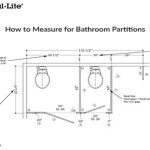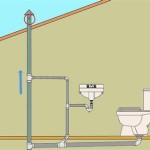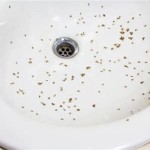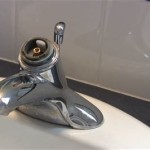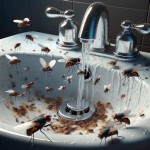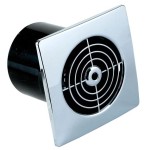How To Get Rid Of Bathroom Shower Drain Smell
A persistent unpleasant odor emanating from a bathroom shower drain can be a significant nuisance, impacting the overall hygiene and comfort of the living space. Several factors contribute to this issue, and addressing it effectively requires a systematic approach. This article details practical methods for identifying the cause of the smell and implementing appropriate solutions to eliminate it.
The root of the problem often lies in the accumulation of organic matter within the drainpipe. Hair, soap scum, body oils, and other debris combine to form a sludge that decomposes over time, producing foul-smelling gases. Inadequate ventilation, infrequent drain cleaning, and plumbing issues can exacerbate this situation.
Proper diagnosis is paramount to successful remediation. The initial step involves identifying the specific characteristics of the odor. Is it a sulfurous, rotten egg smell, indicative of sewer gas? Or is it more of a musty, mildew-like scent, suggesting the presence of mold or bacteria? Determining the nature of the smell will guide the selection of appropriate cleaning agents and techniques.
Identifying the Source of the Odor
Before embarking on any cleaning procedures, it's advisable to inspect the visible components of the shower drain. Remove the drain cover and visually examine the drain opening. Look for any obvious build-up of hair, soap scum, or other debris. If a significant amount of visible blockage is present, it should be manually removed using a tool such as a bent wire hanger or a specialized drain-cleaning tool.
The trap, a U-shaped section of pipe located under the drain, plays a crucial role in preventing sewer gases from entering the bathroom. This trap is designed to hold a small amount of water, which acts as a barrier against the escape of these gases. If the shower is not used frequently, the water in the trap can evaporate, allowing sewer gases to seep into the room. To remedy this, simply run water down the drain for a few minutes to refill the trap.
Another potential source of odor can be backflow from a nearby toilet. If the toilet is clogged or improperly flushed, wastewater can sometimes back up into the shower drain. This situation is often characterized by a strong, sewage-like smell. If this is suspected, the toilet should be thoroughly inspected and any clogs should be removed.
In multi-story buildings, plumbing issues in adjacent apartments can sometimes contribute to shower drain odors. Shared drain lines can become congested or develop leaks, leading to the migration of foul smells. If the problem persists despite individual cleaning efforts, it may be necessary to consult with a building maintenance professional or a licensed plumber to investigate the plumbing system more broadly.
Basic Cleaning Solutions
Once the preliminary assessment is complete, one can begin the cleaning process. Several readily available household products can be used to effectively eliminate shower drain odors. The choice of cleaning agent will depend on the severity of the problem and individual preferences.
Hot water is a simple yet effective first step. Pouring a kettle of boiling water down the drain can help to dissolve soap scum and flush away loose debris. However, it’s essential to exercise caution when using boiling water, especially with PVC pipes, as excessive heat can potentially damage them. For PVC pipes, very hot tap water is recommended instead of boiling water.
Baking soda and vinegar are a classic combination for unclogging and deodorizing drains. Pour one cup of baking soda down the drain, followed by one cup of vinegar. The mixture will fizz and bubble, helping to loosen organic matter. Allow the mixture to sit for 30 minutes, then flush with hot water. This process can be repeated several times if necessary.
For more stubborn odors, a solution of bleach and water can be used. Mix one part bleach with ten parts water and carefully pour the solution down the drain. Allow it to sit for 15-20 minutes, then flush with plenty of cold water. It is crucial to exercise caution when using bleach, as it can be corrosive and can damage certain surfaces. Ensure adequate ventilation and wear gloves to protect the skin. Bleach should never be mixed with other cleaning agents, especially ammonia, as this can create toxic fumes.
Enzymatic drain cleaners are a more environmentally friendly alternative to harsh chemical cleaners. These products contain enzymes that break down organic matter, without harming pipes or the environment. Follow the instructions on the product label carefully, as the dosage and application method may vary.
If the odor persists after these basic cleaning methods, it may be necessary to use a drain snake or auger to manually remove stubborn blockages. Insert the snake into the drain opening and rotate it to break up and dislodge any accumulated debris. Carefully remove the snake, along with any attached debris, and dispose of it properly.
Advanced Cleaning Techniques and Prevention
In situations where the odor is particularly persistent or severe, more advanced cleaning techniques may be required. These methods often involve specialized equipment or professional assistance.
Hydro jetting is a powerful cleaning method that uses high-pressure water to blast away blockages and thoroughly clean drainpipes. This technique is typically performed by professional plumbers and can be very effective in removing stubborn build-up. However, it is important to ensure that the plumbing system is in good condition before hydro jetting, as the high pressure can potentially damage weakened pipes.
Video inspection of drainpipes can help to identify the exact location and nature of any blockages or damage. A plumber inserts a small camera into the drainpipe to visually inspect the interior. This allows the plumber to diagnose the problem accurately and recommend the most appropriate course of action.
Preventing shower drain odors is crucial for maintaining a clean and healthy bathroom environment. Regular drain cleaning is the most effective way to prevent the accumulation of organic matter. A simple routine of flushing the drain with hot water after each shower can help to prevent the build-up of soap scum and hair.
Using a drain strainer can significantly reduce the amount of hair and debris that enters the drainpipe. These inexpensive devices are readily available at most hardware stores and are easy to install. Regularly clean the drain strainer to remove any accumulated debris.
Avoid pouring grease or oily substances down the drain, as these can solidify and contribute to blockages. Dispose of cooking oils and fats properly in a sealed container. Similarly, avoid flushing hair down the toilet or shower drain.
Ensure adequate ventilation in the bathroom by opening windows or using an exhaust fan after each shower. This will help to reduce humidity and prevent the growth of mold and mildew, which can contribute to unpleasant odors.
Consider using liquid soap instead of bar soap, as bar soap tends to leave more residue that can contribute to drain build-up. If using bar soap, rinse the shower thoroughly after each use to remove any remaining residue.
Periodically, pour a solution of baking soda and vinegar down the drain as a preventative measure. This will help to keep the drain clean and prevent the build-up of organic matter.
If the shower drain odor is persistent and difficult to resolve, it may be necessary to consult with a licensed plumber. A plumber can inspect the plumbing system for underlying issues such as leaks, damaged pipes, or improperly installed drains. They can also recommend appropriate solutions and perform any necessary repairs.
Maintaining a clean and odor-free shower drain requires a combination of preventative measures, regular cleaning, and prompt attention to any potential problems. By following the steps outlined in this article, one can effectively eliminate shower drain odors and maintain a clean and hygienic bathroom environment.

Why Your Shower Drain Smells Fixing Common Problems

Shower Drain Smells Like A Sewer Quick Easy Fix

Two Easy Ways To Fix A Smelly Shower Drain I Rick S Plumbing

Get Rid Of Shower Drain Smells Mr Rooter Syracuse

Why Your Shower Drain Smells Fixing Common Problems

How To Clean A Shower Drain

Why Your Shower Drain Smells Fixing Common Problems

How To Get Rid Of A Smelly Bathroom Drain Lipka Home

How To Get Rid Of Those Shower Drain Smells

How To Fix Smelly Bathroom Floor Drains
Related Posts

